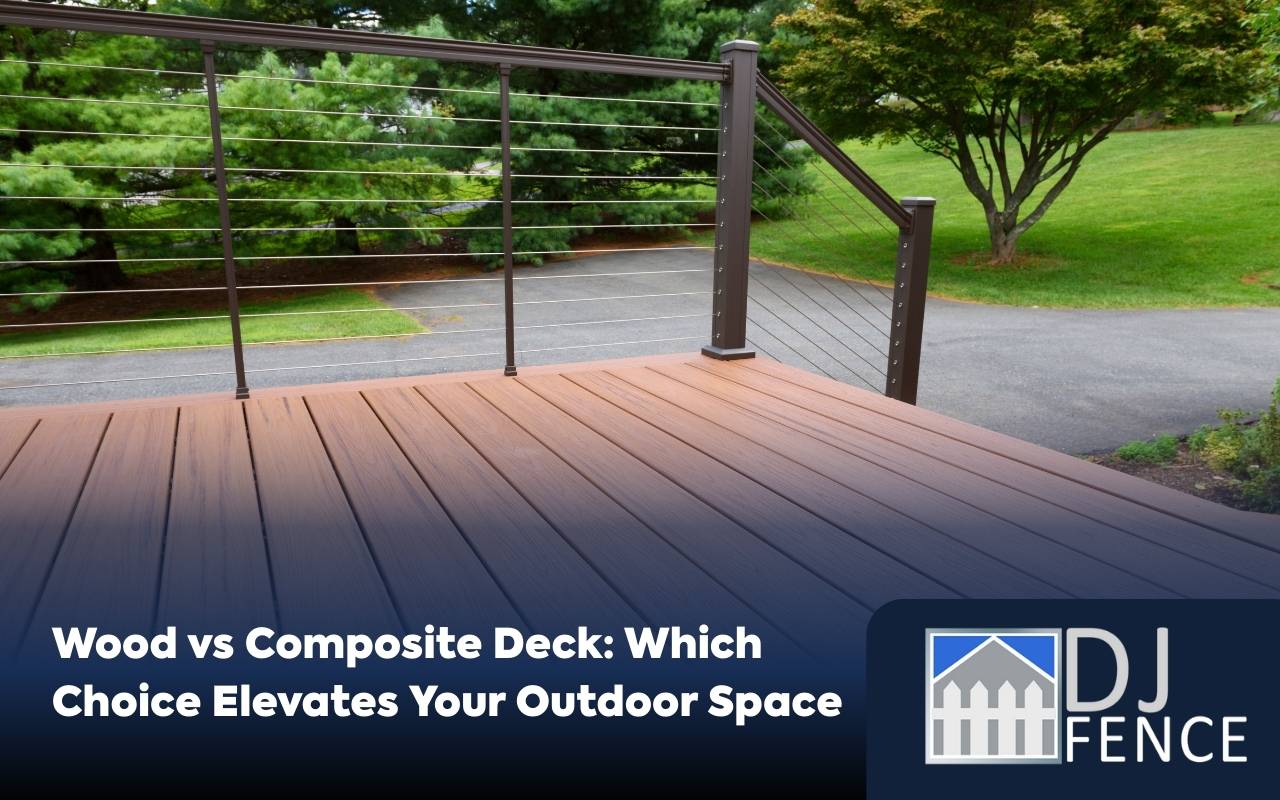
As you step into your backyard, the vision of a perfect outdoor sanctuary begins to unfold. It becomes a place where morning coffees turn into cherished rituals and sunset gatherings with friends create treasured memories. The choice of decking material plays a pivotal role in shaping this dream space. The debate of wood vs composite deck is a hot topic among homeowners eager to elevate their retreats. Both materials promise durability and charm, but their unique characteristics affect aesthetics, longevity, and maintenance. Wood decks, praised for timeless beauty, deliver natural warmth that composites try to mimic. Composite decks, however, have surged due to low maintenance and weather resistance. By understanding each option’s strengths, you can make an informed decision. Dive into this comparison and discover which choice aligns with your vision and lifestyle.
Durability and Longevity Factors
When comparing wood vs composite deck options, durability becomes a key consideration. Wood species like cedar and redwood offer respectable lifespans. Yet, they remain vulnerable to rot, insects, and warping over time. Composite decking, crafted from recycled plastics and wood fibers, resists many of these threats effectively. Its engineered design reduces cracking and splitting, ensuring longer life in varied climates.
- Wood lifespan: 15 to 25 years with proper care.
- Composite lifespan: up to 30 years or more.
- Composite often includes warranty coverage exceeding 25 years.
Evaluating climate, foot traffic, and usage helps align expectations with each decking choice.
Aesthetics: Natural vs Modern Look
The deck’s visual appeal defines the outdoor atmosphere. Wood decking is prized for grain patterns, warm hues, and authentic texture. Each plank carries its species’ unique look, and wood develops a charming patina with age. On the other hand, composite decking offers many colors and finishes that mimic natural wood grain while maintaining consistent color. Your preference for authenticity versus modern precision will guide this debate.
- Wood offers timeless rustic charm.
- Composite ensures consistent tones over years.
- Design choice impacts your outdoor style.
Maintenance Requirements
Maintenance often tips the balance in the wood vs composite deck discussion. Natural wood requires sealing, staining, or painting to combat moisture, UV rays, and pests. Homeowners typically perform treatments every two to three years. Routine cleaning with wood-specific products prevents mold and mildew. Composite decking streamlines upkeep, requiring only occasional soap-and-water washes. Its non-porous surface resists stains and microbial growth without added coatings. This makes composite an attractive choice for busy households.
Environmental Impact Considerations
Sustainability plays a growing role in deck selection. Responsibly sourced wood carries the advantage of being renewable. FSC certification ensures that harvesting supports forest regeneration. However, chemical treatments and transport emissions add to the footprint. Composite decking incorporates recycled plastics and reclaimed wood fibers, diverting waste from landfills. Some manufacturers now focus on reducing VOCs and using bio-based resins, making composite more eco-friendly.
Cost Analysis: Upfront and Long-Term
Wood decks usually cost less upfront than composite decks. Raw lumber is affordable, and installation uses standard carpentry techniques. However, recurring expenses like sealing and repairs increase long-term costs. Composite decking has a higher initial price but lower maintenance expenses. Durability minimizes repairs, and many homeowners recoup investment through property value and extended deck life.
Customization Options and Design Flexibility
Wood decking excels in customization. It is easily shaped and modified with standard tools, allowing carved features and built-in seating. Paints and stains expand creative opportunities. Composite decking, though more rigid, comes with modular accessories, integrated lighting options, and hidden fastening systems. Whether you favor handcrafted charm or engineered precision, both choices allow design freedom.
Resistance to Weather Elements
Weather resistance is essential in the wood vs composite deck choice. Wood absorbs moisture, which can cause swelling, splintering, and mold. UV rays fade natural pigments, requiring protective stains. Composite decking, however, repels water, resists warping, and withstands freeze-thaw cycles. Many products carry warranties against fading and staining, ensuring performance in challenging climates.
Installation Process and Ease of Construction
Installing a wood deck is straightforward for contractors and DIY enthusiasts. Boards are easy to cut, shape, and fasten. Yet, installation requires precise leveling and can be labor-intensive. Composite decking involves heavier boards and often specialized fasteners. Though installation may take longer, the result is a clean, uniform finish. Some systems even feature tongue-and-groove edges for seamless assembly.
Eco-Friendliness: Sustainability and Recycling Practices
Eco-conscious homeowners often weigh sustainability. Certified wood can be carbon-neutral, and untreated boards are compostable. Yet chemical treatments complicate disposal. Composite decking commonly uses high percentages of recycled materials and supports circular economy principles. Some brands operate recycling programs, repurposing old boards into new ones. Advances in bio-based composites further reduce environmental impact.
FAQs About Wood vs Composite Deck
1. Which material requires less upkeep?
Composite requires only occasional cleaning, while wood needs staining and sealing every few years.
2. Can composite decking fade over time?
High-quality composites maintain color better than wood, though minimal fading may occur in harsh climates.
3. Is wood more customizable than composite?
Yes, wood allows easier cutting and shaping, while composite requires special tools but offers modular design options.
4. Are composite decks eco-friendly?
Many composites use recycled plastics and reclaimed wood, supporting sustainability goals.
5. Which deck type lasts longer?
With proper care, wood lasts 15–25 years, while composites often last 30 years or more.
Making the Best Choice for Your Outdoor Space
Choosing between wood vs composite deck depends on your priorities. Wood offers authenticity and customization, while composite excels in durability and low upkeep. Climate, design goals, and maintenance preferences should guide your decision. If you seek expert advice, explore our deck builder services. For more care insights, visit our guide on deck staining benefits. Ready to start your project? Reach out through our contact page today.
